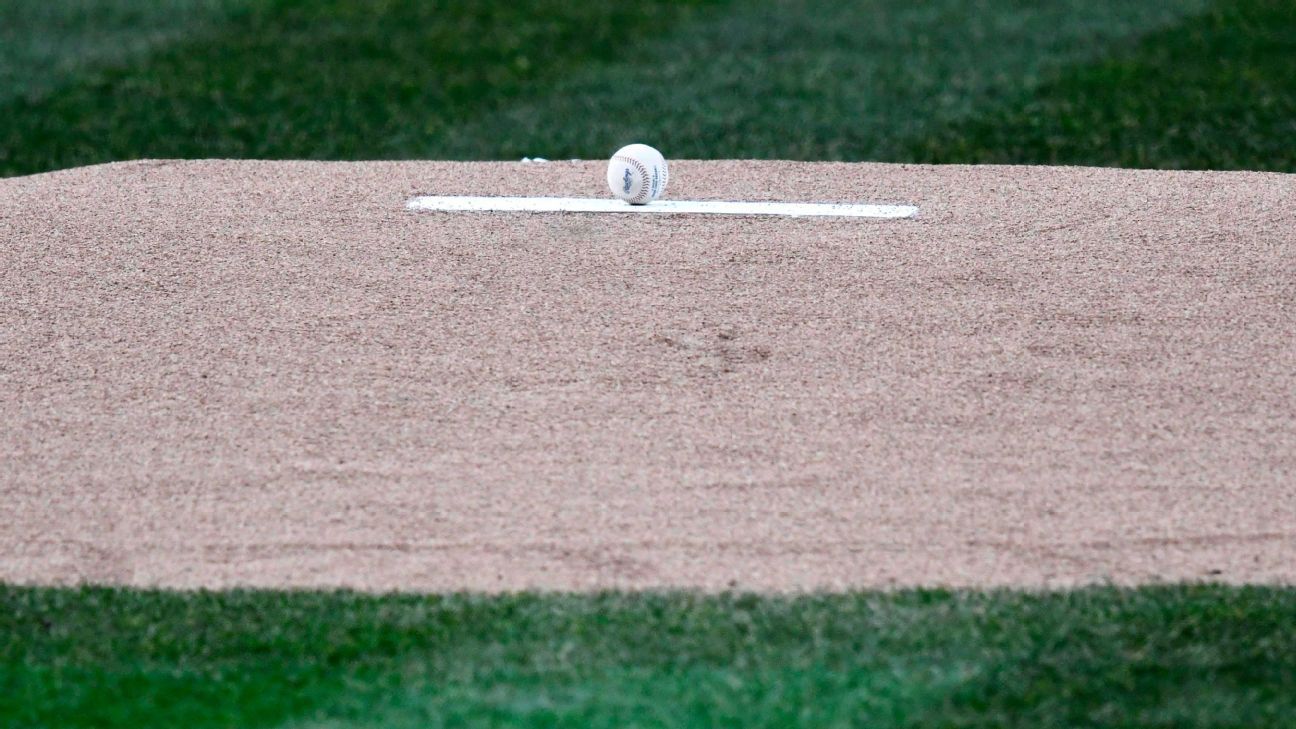Major League Baseball has once again teamed with the independent Atlantic League to test rule changes, with the current set aimed at keeping starting pitchers in the game longer and creating more balls in play.
In the second half of Atlantic League play this summer, starting Aug. 3, the pitching rubber will be moved back 1 foot — to 61 feet, 6 inches — giving hitters more time to react to pitches, according to a release by MLB on Wednesday.
With strikeout rates increasing for 15 consecutive years, MLB determined that the additional foot would be the “minimum interval needed to evaluate a change in mound distance.” The hope is fewer swing-and-misses and more contact — a change that is “meaningful without being disruptive,” according to the release.
“We are grateful that the Atlantic League — which has been at the forefront of successful rule experiments in the past — has agreed to test a 12-inch increase in the distance between the pitching rubber and home plate during the second half of the season,” MLB consultant Theo Epstein said in the statement. “We expect to learn a great deal about the impacts of such a change and whether an adjustment to this critical field dimension is worth potential future consideration at other levels of professional baseball.”
In 2019, the last full season, strikeouts set a record for the 12th consecutive year at 42,823, up 33% from 32,189 in 2007. Strikeouts exceeded hits the past three seasons after that never having occurred before in major league history.
The mound has been at its current distance since 1893, when the National League moved the rubber back 5 feet. Strikeouts declined from 8.5% in 1892 to 5.2% in 1893, and the batting average increased from .245 in 1892 to .280.
Two years ago, MLB had announced that Atlantic League mounds would be moved back 2 feet to 62 feet, 6 inches, for the second half of that season, but that experiment was abandoned before it began.
The Atlantic League will also implement a “double-hook” rule, in which a team will lose its designated hitter when it removes its starting pitcher. That rule will be in effect the entire season, which starts May 27. The goal is to see starters pitch longer into games, creating more value for them and increasing late-game strategy.
“Major League Baseball is being more aggressive than they’ve ever been in experimenting with new rules,” Milwaukee Brewers manager Craig Counsell said Wednesday morning. “We have to wait and see what the effects are. I’m not sure how it’s going to affect the game.”
The experiments in the Atlantic League come after baseball instituted several rule changes at the minor league levels, including bigger bases, regulating the shift and forcing pitchers to disengage from the rubber completely before throwing to any base.
“We have to do something to get more offense into the game,” Chicago Cubs president of baseball operations Jed Hoyer said. “We need to make adjustments. The DH originally came from these adjustments. The mound being lowered [in 1969] came from these adjustments. I love baseball, but the rules aren’t written on stone tablets.”
The Atlantic League will continue to use the automated ball-strike computer umpire system that it started with in 2019. The ABS also will be used in some low Class A Southeast League games this season.
In a change, the strike zone in the Atlantic League this year will be two-dimensional, measuring at the front of home plate, rather than three-dimensional.
That strike zone is “one we think will better match the human zone people are expecting,” said Morgan Sword, MLB executive vice president of baseball operations.
The Associated Press contributed to this report.
